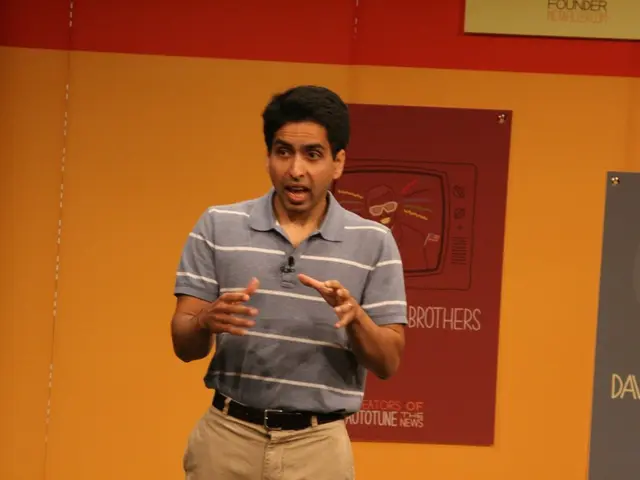International body decisively opposes Israel's plan for humanitarian aid delivery to Gaza region
Fed-up UN Slams Israeli Proposal for Gaza Aid Delivery
In a hard-hitting rejection of Israel's proposal, the United Nations Office for the Coordination of Humanitarian Affairs (OCHA) has blasted the plan to change the way aid is delivered to the Gaza Strip.
Speaking publicly on Sunday, OCHA voiced their displeasure, stating that Israeli officials aimed to scrap the current UN-run aid system and force the agreement to supply essential items through Israeli military-controlled hubs. This would occur once the Israeli authorities greenlight the re-opening of crossings.
In their explanation, OCHA highlighted that this structure would cause continued hardship for numerous Gaza residents, particularly the less mobile and most vulnerable, who would be subjected to prolonged deprivation of crucial aid.
OCHA strongly asserted that the proposal flew in the face of humanitarian principles and instead appeared designed to strengthen Israel's control over life-sustaining supplies as a means of coercion.
Making their disapproval explicit, OCHA warned that the plan could be fatal, driving ordinary folks into war zones to collect foodstuffs. This would put humanitarian workers at risk, while further entrenching forced displacement and intensifying the tragic cycles of conflict.
The UN Secretary-General and the Emergency Relief Coordinator had already voiced their opposition to any aid program that disregards humanitarian principles based on humanity, impartiality, independence, and neutrality.
In the past nine weeks, Israeli forces, bolstered by the United States, have imposed a crude blockade on Gaza, causing bakeries, communal kitchens, and charitable organizations to cease operations. International agencies operating within the Strip have lamented that their warehouses are now barren, devoid of food and baby formula.
Since 7 October 2023, Israeli forces have maintained a devastating offensive against the Gaza Strip, resulting in over 170,000 Palestinians even killed or injured, with many more feared buried beneath the ruins.
International organizations like UNICEF have sounded the alarm that children in Gaza face a growing threat of starvation, illness, and demise as Israel's aid blockade drags on.
HEADLINES:
- 'Bread Not Bombs!': Doctors Against Genocide plead for Gaza at US Capitol
- Children in Gaza 'face growing risk of starvation, illness, death' as Israeli aid blockade continues: UNICEF
Key Points:
- The Israeli proposal aims to replace the existing UN-controlled aid distribution system by forcing aid to be channeled through Israeli military-controlled facilities.
- Implementation of this plan would lead to a worsening humanitarian crisis, particularly among the less mobile and most vulnerable.
- The UN remains steadfast in its commitment to upholding humanitarian principles of humanity, impartiality, independence, and neutrality.
- The existing blockade of essential supplies has already resulted in severe shortages of food, water, and medical supplies in Gaza.
- Over 200 NGOs and around 15 UN agencies have united in their rejection of the Israeli proposals due to the potential for increased suffering in Gaza.
[1] https://www.un.org/sustainabledevelopment/humanitarian-action/principles/[2] https://reliefweb.int/report/palestinian-territory-occupied-1967/humanitarian-coordination-office-nr-23-2023-079-israeli-aid[3] https://www.un.org/unrwa/newsroom/releases/statement-un-official-crisis-usa-criticises-debunks-current-media-narrative-on-gaza[4] https://www.thenewhumanitarian.org/news-feature/2023/12/04/Gaza-Strip-Humanitarian-aid-Israel-blockade-UN-Palestine
- The UN Office for the Coordination of Humanitarian Affairs (OCHA) voiced displeasure over Israel's proposal to change the aid delivery system in Gaza, claiming it would exacerbate hardship for the most vulnerable.
- OCHA accused Israeli officials of aiming to scrap the current UN-run aid system and replace it with aid distribution through Israeli military-controlled hubs.
- The proposed structure would subject less mobile and vulnerable Gaza residents to prolonged deprivation of essential aid, OCHA argued.
- OCHA asserted that the Israeli plan disregards humanitarian principles and seeks to reinforce Israel's control over life-sustaining supplies.
- The UN Secretary-General and the Emergency Relief Coordinator have vehemently opposed any aid program disregarding humanitarian principles based on humanity, impartiality, independence, and neutrality.
- Over 200 NGOs and around 15 UN agencies have rejected the Israeli proposals, citing increased suffering in Gaza as a potential consequence.
- Since October 2023, Israeli forces have maintained a deadly offensive against the Gaza Strip, leading to over 170,000 deaths or injuries, with many more feared buried in the rubble.
- International organizations like UNICEF have raised concerns about children in Gaza facing a growing risk of starvation, illness, and death due to the Israeli aid blockade.
- Humanitarian groups, such as Doctors Against Genocide, are pressuring the United States to intervene in the Gaza crisis, calling for an end to the Israeli blockade and the delivery of essential aid to Gaza residents.







